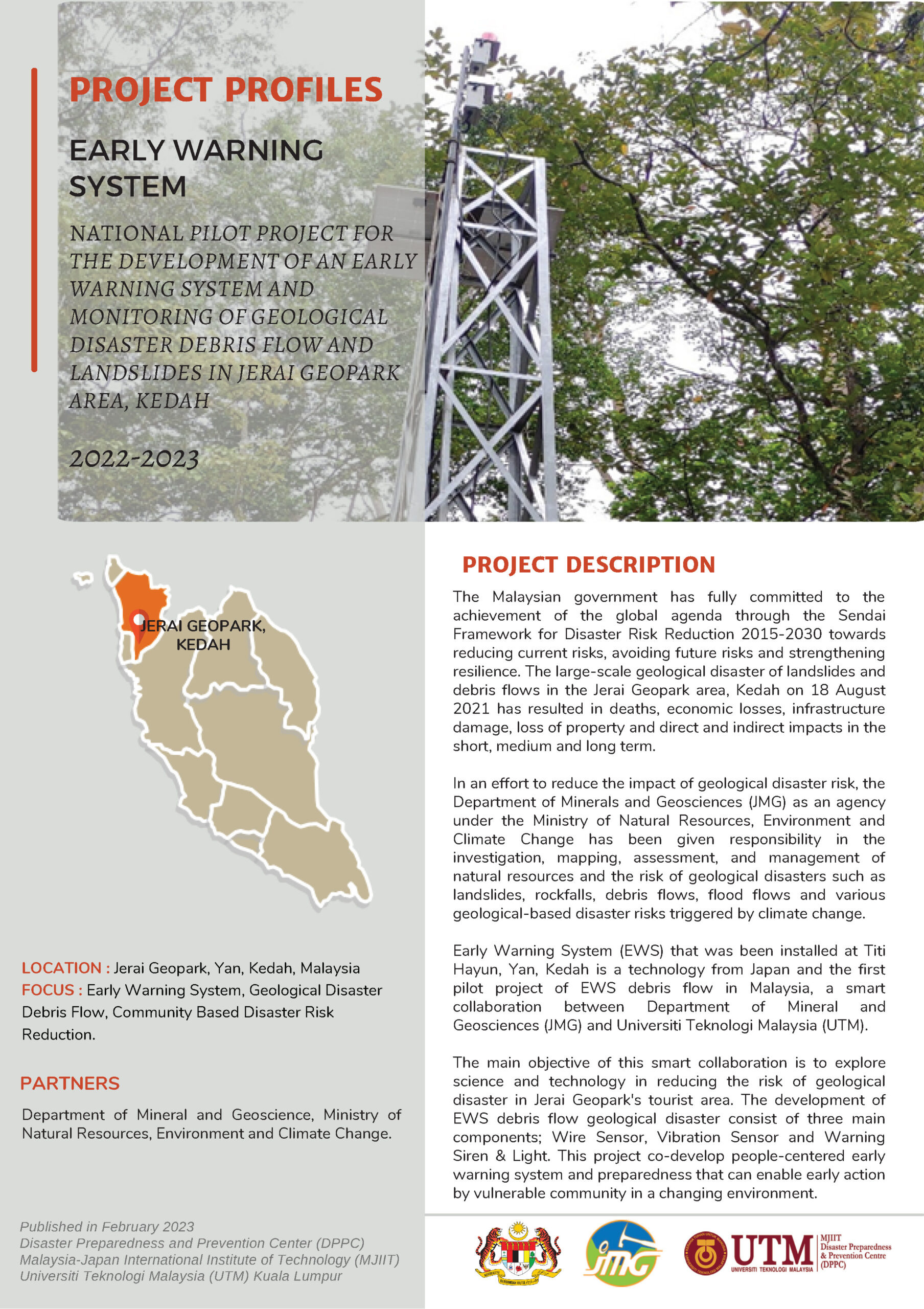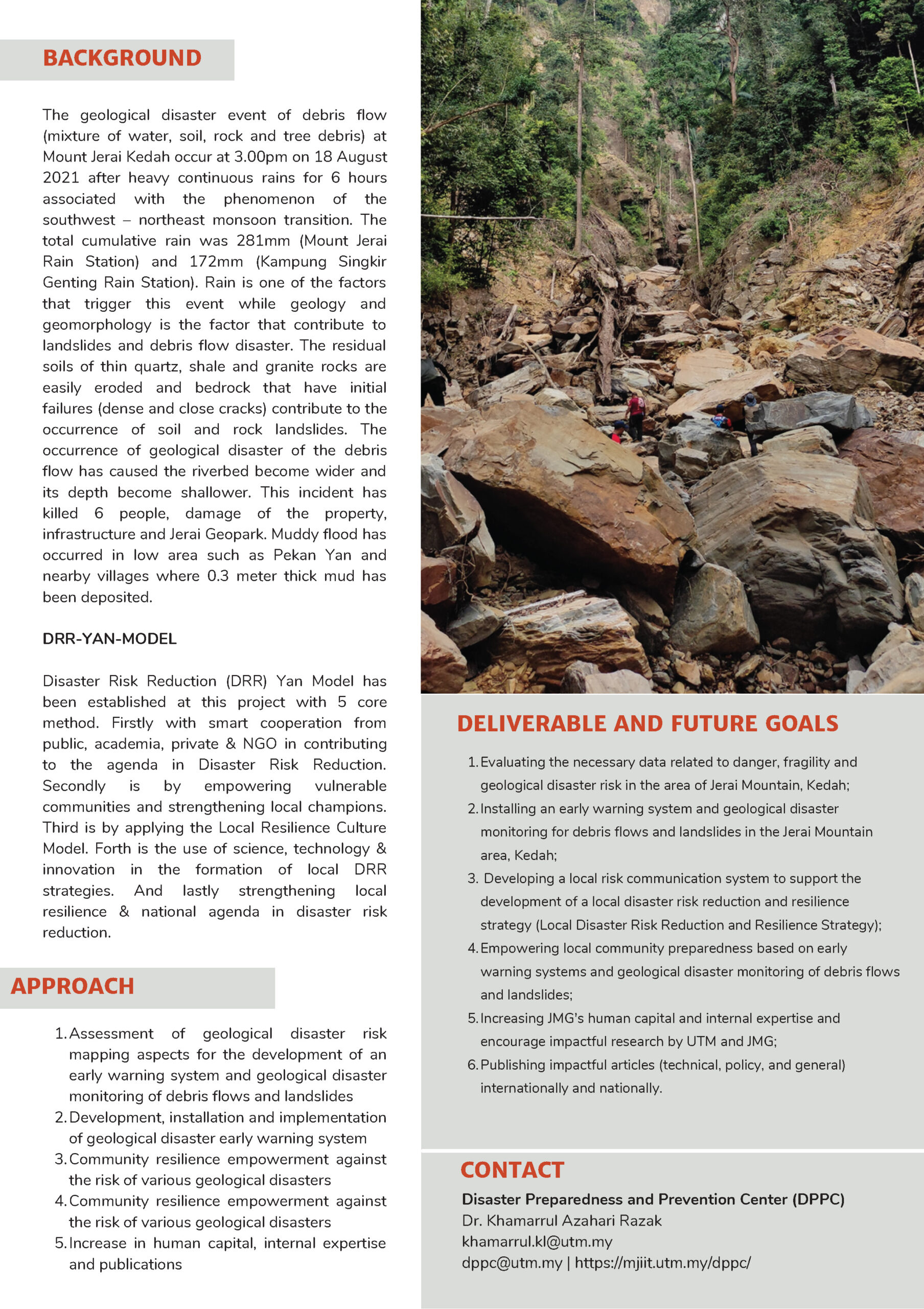National Pilot Project for the Development of an Early Warning System and Monitoring of Geological Disaster Debris Flow and Landslides in Jerai Geopark Area, Kedah
The Malaysian government has fully committed to the achievement of the global agenda through the Sendai Framework for Disaster Risk Reduction 2015-2030 towards reducing current risks, avoiding future risks and strengthening resilience. The large-scale geological disaster of landslides and debris flows in the Jerai Geopark area, Kedah on 18 August 2021 has resulted in deaths, economic losses, infrastructure damage, loss of property and direct and indirect impacts in the short, medium and long term.
In an effort to reduce the impact of geological disaster risk, the Department of Minerals and Geosciences (JMG) as an agency under the Ministry of Natural Resources, Environment and Climate Change has been given responsibility in the investigation, mapping, assessment, and management of natural resources and the risk of geological disasters such as landslides, rockfalls, debris flows, flood flows and various geological-based disaster risks triggered by climate change.
Early Warning System (EWS) that was been installed at Titi Hayun, Yan, Kedah is a technology from Japan and the first pilot project of EWS debris flow in Malaysia, a smart collaboration between Department of Mineral and Geosciences (JMG) and Universiti Teknologi Malaysia (UTM).
The main objective of this smart collaboration is to explore science and technology in reducing the risk of geological disaster in Jerai Geopark’s tourist area. The development of EWS debris flow geological disaster consist of three main components; Wire Sensor, Vibration Sensor and Warning Siren & Light. This project co-develop people-centered early warning system and preparedness that can enable early action by vulnerable community in a changing environment.

